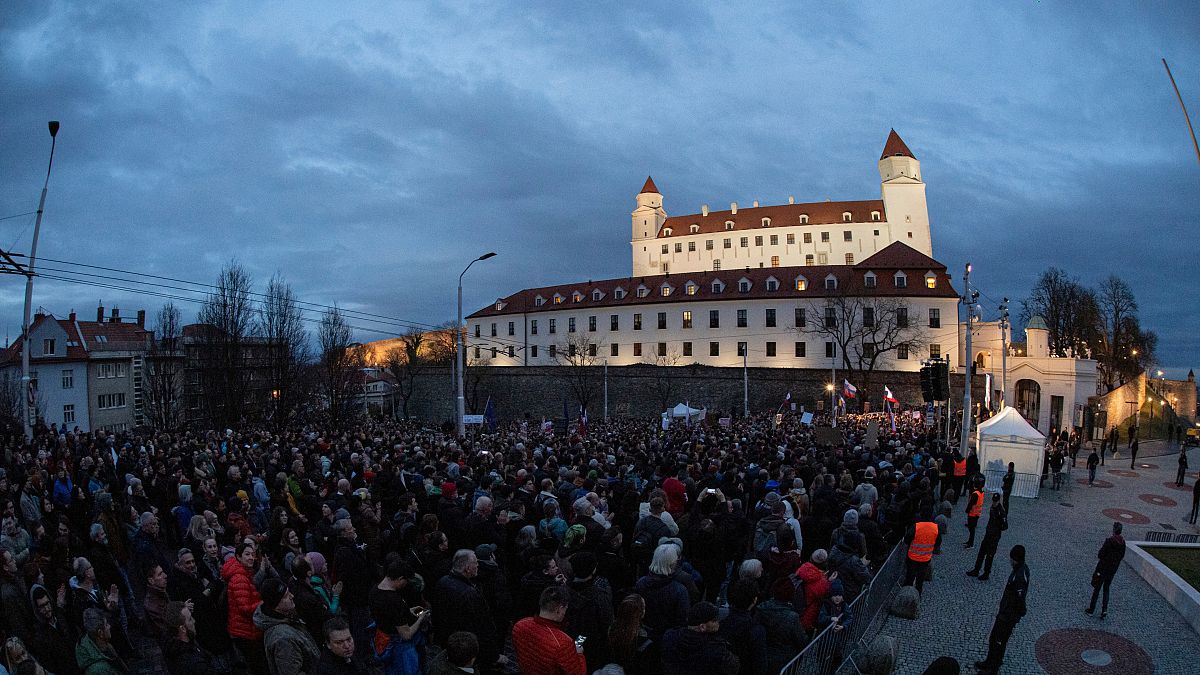The controversial plans include a reduction in punishments for corruption, a possible shortening of suspended sentences, and the statute of limitations.
Thousands protested outside Slovakia's Parliament on Wednesday over populist Prime Minister Robert Fico's plan to abolish the special prosecutor's office, which is tasked with tackling major crime and corruption.
The demonstration took place as lawmakers concluded a debate over numerous proposed changes to Slovakia's penal code.
Several individuals associated with the prime minister's party are under prosecution for involvement in corruption scandals. The planned reforms, which propose to lessen penalties for corruption and substantially reduce the statute of limitations, have raised concerns among European Union bodies.
Under the plan approved by Fico’s coalition government, crimes such as graft, organised crime and extremism would be taken over by prosecutors in regional offices, which haven’t dealt with such crimes for 20 years.
The government forced a fast-track parliamentary procedure to approve the changes, meaning the draft legislation was not reviewed by experts and others usually involved in the process.
The coalition also limited time for parliamentary debate.
“It's a matter of fact that they're afraid of you,” Michal Šimečka, who leads the liberal Progressive Slovakia, the strongest opposition party, told the peaceful crowd. “They hope it will be all over tomorrow, but that's only a beginning."
President Zuzana Čaputová stated her readiness to veto the amendment and initiate a constitutional challenge should the three-party ruling coalition bypass her veto. Opposition parties are also preparing to challenge the move. It’s unclear how the Constitutional Court might rule.
Protests against the abolition of the office started two months ago and have spread from the capital, Bratislava, to more than 30 cities and towns and even abroad.
Fico returned to power for the fourth time last year when his leftist party emerged victorious in the September 30 parliamentary elections, coming to power on a pro-Russian, and anti-American platform.
Critics fear this could steer Slovakia away from its pro-Western orientation towards something more like the authoritarian, EU-sceptic path Hungary has taken under Prime Minister Viktor Orbán.
